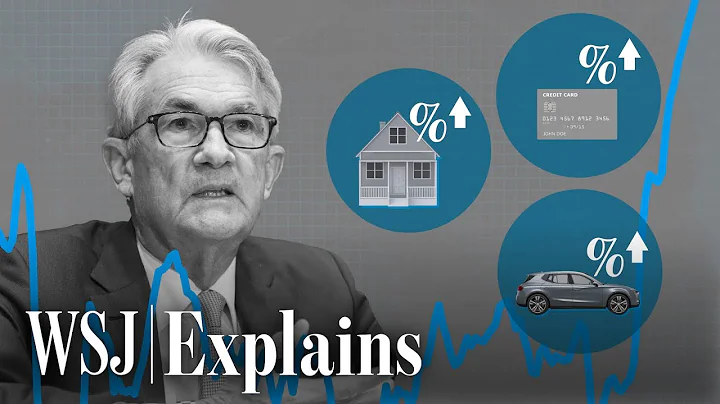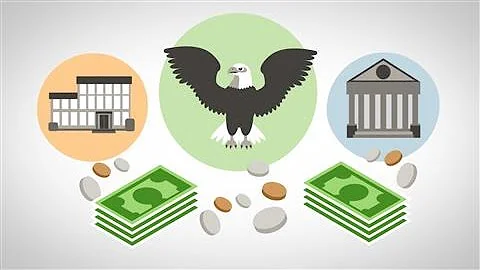
Editor's note: What changes have taken place in the world economy last week, and where are the investment opportunities now? Seize the wealth opportunities behind every major event, Huasheng will help you invest around the world!
#ETF fund flow for the week (3/18-3/24)



#The top ten net inflows for the week:

#The top ten net outflows for the week:

Economic events of the week
The Federal Reserve keeps interest rates unchanged, and the market predicts future interest rate cuts.
The Federal Reserve keeps interest rates unchanged. 2.25%-2.5 remains unchanged, and plans to stop shrinking the balance sheet in September. It lowered its GDP forecast from 2.3% to 2.1% and hinted that there will be no interest rate hikes this year. Federal Reserve Chairman Jerome Powell reiterated his cautious stance on monetary policy. According to the Chicago Mercantile Exchange Group's FedWatch tool, the likelihood of the Fed raising interest rates in a year is almost zero. In fact, the indicator implies that there is about a 70% chance that the Fed will remain at current levels, and a 30% chance that it will be even lower. Some even estimate that interest rates will be as low as 1.5% to 1.75%, 75 basis points below current levels, implying the possibility of several rate cuts. CME data showed that as of Friday's close, futures market traders believed the probability of the Federal Reserve cutting interest rates at least once before the end of this year was 58%, up from 11% a month ago.
Key U.S. debt Interest rate spread inversion triggers "recession" concerns
The interest rate spread between the 10-year and 3-month Treasury bonds, which is valued by some Federal Reserve officials, has inverted for the first time since 2007. An inverted yield curve is widely considered a reliable harbinger of a U.S. recession. Bianco Research data shows that in the past 50 years, the 3-month/10-year Treasury bond yield curve has been inverted for more than 10 days a total of 7 times, and an economic recession occurred after an average of 311 days.
The U.S. budget deficit hit a record high in a single month
Data released by the U.S. Treasury Department on Friday showed that the U.S. federal government’s budget deficit in February was $234 billion, a record high in a single month. Analysts polled by Reuters had expected the U.S. fiscal deficit to be $227 billion this month. In addition, the IHS Markit US March preview manufacturing purchasing managers index (PMI15) fell to a 21-month low, and the services PMI index fell to a two-month low. The March preview manufacturing PMI index fell to 52.5 from 53 in February, and the services PMI index fell from 56 to 54.8.
Weak data heightened concerns about the European economy
A series of negative economic data weighed on investor sentiment on the last trading day of the week. IHS Markit's preliminary euro zone composite purchasing managers' index (PMI) fell to 51.3 in March from 51.9 in the previous month. Analysts had expected the index to be 51.8. The latest preliminary value of the Eurozone Manufacturing Purchasing Managers Index (PMI) in March was 47.6, a 69-month low. Among them, the preliminary value of the German manufacturing PMI in March fell to 44.7, a 79-month low, marking the fourth consecutive month. Three months below the boom-bust line. Affected by this, the German 10-year government bond yield turned negative for the first time since October 2016. The initial value of the French manufacturing PMI fell to 49.8, which was also far lower than expected. The OECD has lowered the forecast for the European economy in 2019 to 1% from the previous 1.8%.
Millions of people demand another referendum on Brexit.
On March 23, local time, British people took to the streets of London and peacefully marched to demand that the government hold another referendum on "Brexit". Organizers said more than a million people took part in the march, with many politicians from different parties taking part. The British House of Commons voted on the 13th to oppose a "no-deal Brexit" for the UK under any circumstances. Teresa May said after the voting results were announced that to ensure that a "no-deal Brexit" situation does not occur, the UK and the EU need to reach a "Brexit" agreement, but the EU has made it clear that it has been rejected by the House of Commons of the British Parliament before. The twice-vetoed Brexit deal will be the only feasible solution. Analysts say Theresa May’s Brexit plan is in name only, and a “no-deal Brexit” is still possible. It is expected that Parliament will vote again on the replacement of the "Brexit" plan on the 27th.
The Indian stock market rose against the trend and attracted institutions to pursue it.
Last year, it withstood the "headwind" of the Federal Reserve's interest rate hike and bucked the trend and recorded a full-year rise, becoming the most magical thing in the Asian stock market. Since the beginning of this year, the Indian stock market has risen by 5.89%. Nowadays, the Federal Reserve's "dove-talking" has caused funds to flow back to emerging markets. In addition, investors believe that India's political situation will remain stable after the election and corporate earnings growth can be expected. Many institutions continue to be optimistic about the Indian stock market. Morgan Stanley's research report predicts that emerging markets will rebound collectively this year, and the MSCI Emerging Markets Index will rise another 8% by the end of 2019 compared with the current level. It also said that investors who want to participate in this round of emerging market rebound should focus on China, India, Indonesia, Singapore and Brazil.
International oil prices closed lower amid concerns about a global economic slowdown
Crude oil futures prices fell further from their 2019 highs. The lack of progress in international trade negotiations and weak manufacturing data in Europe and the United States have once again triggered concerns about a slowdown in the global economy and oil demand. London Brent crude oil futures prices closed down 1.3% on Friday. It was quoted at US$66.96/barrel. Brent crude, the global benchmark for crude oil prices, has risen more than 20% since early January, mainly due to production cuts by the Organization of the Petroleum Exporting Countries (OPEC) and allies such as Russia, as well as U.S. sanctions on countries such as Iran and Venezuela. Caused by.
Gold prices hit a three-week high on Friday amid concerns over an economic slowdown
Although facing headwinds from a stronger U.S. dollar, worries about slowing global economic growth have resurfaced, and the bond market has also sent signals of economic recession, which still drives gold prices higher. The price of gold futures for April delivery on the New York Mercantile Exchange rose by $5 to close at $1,312.30 per ounce. So far, gold prices have risen by 0.7% this week, marking the third consecutive week of gains. Calculated according to the most active contract, gold futures prices hit a new high since February 28 on Friday.
Market View
JPMorgan Chase : The window of opportunity for risk assets has closed again
The more dovish Federal Reserve has not only failed to boost the market, but may have stimulated a sharp cooling of risk sentiment. The inversion of the front end of the U.S. yield curve is a strong downward signal for the stock and risk asset markets. After last week's FOMC interest rate meeting, Federal Reserve Chairman Powell's recent extremely dovish stance shocked the market, causing the 2y-1y forward spread of the 1-month OIS interest rate to continue to expand from the previous stable level. Analysts at JPMorgan Chase believe that this means that "bad omens in risk asset markets are re-emerging." This also explains the sharp decline in US stocks last Friday, the day after the FOMC meeting.
Fed Bostic: Do not rule out the possibility of raising or lowering interest rates this year
Raphael Bostic, president of the Federal Reserve Bank of Atlanta, said on Friday that the Fed's patient approach to monetary policy does not guarantee this year. The interest rate will remain unchanged for the remainder of the period. "Standing still is certainly an option, but either a rate hike or a rate cut is a possibility to me, depending on how the economy responds. I'm open to all possibilities because our goal is to support the economy as it continues expansion, strong labor market conditions, and inflation close to the committee's symmetric 2% target," Bostic said. "The market should understand this, so I hope I have made my position clear."
Draghi: Companies need to step up preparations for a no-deal Brexit
Information sources said European Central Bank President Mario Draghi told EU leaders on Friday that companies must step up preparations to deal with a possible no-deal Brexit. Draghi's comments came a day after EU leaders agreed at a summit in Brussels to give the UK a last chance to leave the EU with a deal, extending the Brexit deadline by two days from March 29. week, to April 12. Draghi told the European Summit that "the authorities and the central bank are ready, but the private sector must step up preparations." The source said Draghi also told EU leaders that the euro zone economy still faces "long-term weakness and widespread uncertainty," but recession risks remain "fairly low."
Xiaomo CEO: Technology giants should prepare for a full-scale regulatory impact
JPMorgan Chase CEO Jamie Dimon said technology giants should prepare for the kind of regulatory impact that big banks experienced after the financial crisis. Like JPMorgan Chase many years ago, tech giants are now the target of criticism from a wide range of voters, including Democratic presidential candidates, who have called for breaking up companies such as Facebook, Google, and Amazon. Dimon said: "They should really step up and look at this as a very broad matter. Listen carefully to the complaints of the other party, and sometimes you should respond to some legitimate complaints."
# Main ETF changes



#Weekly Selected ETF Introduction:

This article comes from the information column of Huashingtong APP, a Hong Kong and US stock trading platform under Sina Group. If you need to reprint, please indicate the source!





















